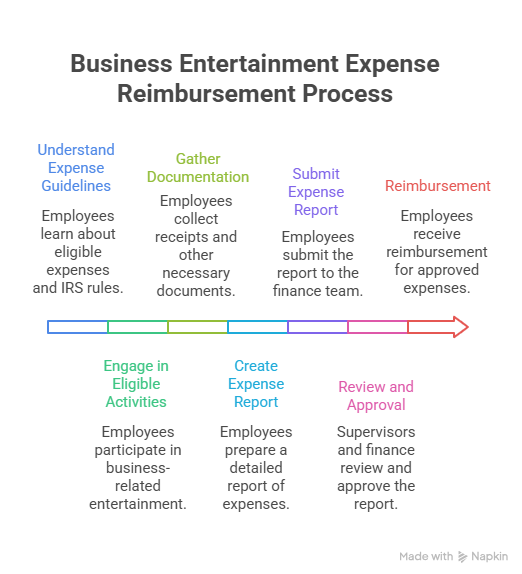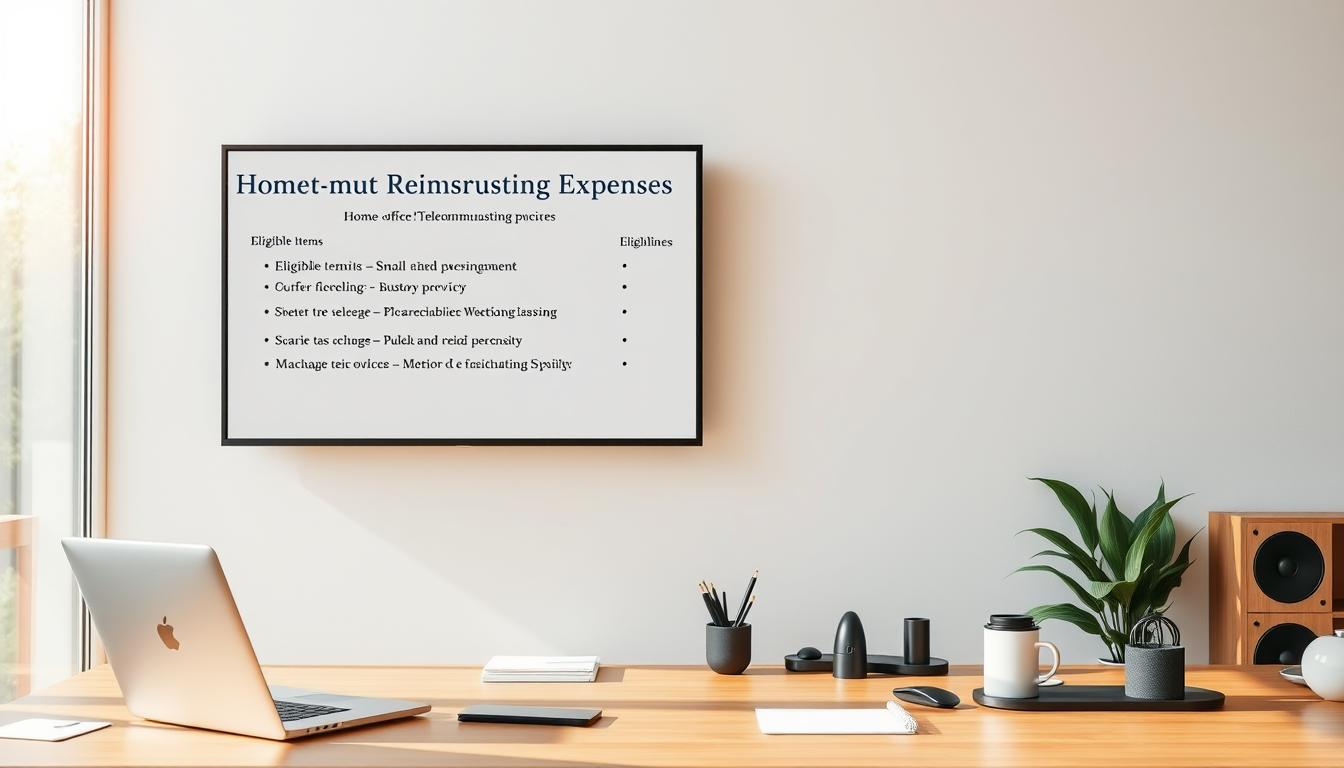Did you know that every year, businesses spend billions on entertaining their clients? Given these high costs, it is essential for both employers and employees to know what is covered by business entertainment expense reimbursement.
Although it can be difficult to navigate, business entertainment expenses can be reimbursed as a valuable employee benefit. This post will explain what is covered, how to submit a claim, and how to get the most out of your reimbursements.
What Qualifies as Business Entertainment Expenses
Employees must comprehend what business entertainment costs are in order to properly navigate the company’s reimbursement policies. Expenses incurred when entertaining customers, potential customers, or staff for work-related reasons are known as business entertainment expenses.
IRS Guidelines and Tax Considerations
Regarding the deductibility of business entertainment expenses, the IRS has particular rules. These costs must be directly tied to the active operation of a business or trade, or to the generation or receipt of revenue, in order to be eligible. Changes brought about by the Tax Cuts and Jobs Act (TCJA) generally restrict these expenses’ deductibility to 50% of the total cost.
Eligible Entertainment Activities
Taking customers out to eat, going to sporting events, or engaging in other forms of entertainment that promote business relationships are all considered eligible activities. But the cost must be affordable and not extravagant. Under some circumstances, employee get-togethers, like holiday parties, may also qualify as business entertainment costs.
Documentation Requirements for Proof
Employees must submit comprehensive documentation, such as receipts, the expense’s business purpose, and the names and titles of those entertained, in order to be reimbursed. To adhere to IRS regulations and business reimbursement policies, accurate and timely documentation is crucial.
Business Entertainment Expense Reimbursement Process
Both finance teams and employees must comprehend the business entertainment expense reimbursement procedure. This procedure helps to keep clear financial records in addition to guaranteeing that workers are paid for reasonable business expenses.
Making a thorough expense report is the first step in this procedure. This entails listing all of the costs incurred during the business entertainment activity, along with the event’s date, time, venue, and goal. It also includes the names and business affiliations of those in attendance.
Creating a Comprehensive Expense Report
Each expense should be clearly described in a thorough expense report, along with any supporting documentation. In order to prevent reimbursement delays, employees should make sure that their reports are complete and accurate.
Following the company’s expense policies and accurately classifying expenses are crucial when putting together the report. This helps with financial analysis and budgeting in addition to expediting the reimbursement process.
Required Receipts and Supporting Evidence
Employees are required to present receipts and supporting documentation in order to verify the claimed expenses. Original invoices, receipts, and evidence of payment are usually included in this. The date, amount, and type of expense should all be prominently displayed on the receipts.
Employees should back up their claims with alternative documentation or a written justification in situations where receipts are missing or unreadable. This guarantees adherence to corporate policies and aids in confirming the validity of the expenses.
Submission Timelines and Approval Workflows
To guarantee prompt reimbursement, employees should be informed of the deadlines for submitting expense reports. Reimbursement may be delayed if expense reports are not submitted by the deadlines set by the company.
Usually, there are several review stages in the approval workflow, ranging from the supervisor to the finance division. Employees who comprehend this workflow will be better able to track the progress of their reimbursement claims and prepare reports appropriately.
In order to ensure a seamless reimbursement process, employees should adhere to these guidelines and keep thorough records. In addition to helping the workers, this also improves the organization’s overall financial situation.

Maximizing Reimbursement and Minimizing Audit Risks
Companies must comprehend business entertainment reimbursement in order to properly manage their spending. Businesses can make sure they’re taking advantage of legal deductions by understanding what constitutes a business entertainment expense and adhering to the correct reimbursement procedure.
It’s critical to keep correct records and adhere to best practices for reimbursement of entertainment expenses in order to prevent problems during audits. This entails maintaining thorough receipts, recording the expenses’ business purpose, and promptly filing claims.
Businesses can reduce the possibility of audit discrepancies and guarantee adherence to IRS regulations by putting these best practices into practice. Businesses can make better financial decisions and manage their entertainment expenditures with the support of efficient expense reimbursement procedures.
In conclusion, preserving financial integrity and lowering the possibility of audit problems depend on a properly run business entertainment reimbursement procedure. Businesses can streamline their reimbursement procedures and concentrate on what really matters—growing their company—by comprehending the recommended practices and guidelines.
FAQ
What is considered a legitimate business entertainment expense?
The costs of entertaining clients or customers, such as meals, event tickets, or other activities that promote business relationships, are considered legitimate business entertainment expenses. The expense must have a direct connection to the ongoing operations of a trade or business in order to be eligible.
How do I document business entertainment expenses for reimbursement?
Receipts, invoices, and other records that specify the date, time, place, and goal of the expenditure—as well as the business relationships of those involved—should be kept on file in order to track business entertainment expenses. For the reimbursement process to go smoothly, accurate and thorough records are necessary.
What are the IRS guidelines for deducting business entertainment expenses?
50% of qualified business entertainment expenses may be written off by the IRS as long as they are directly related to the business or are connected to the ongoing operation of a trade or business. Expenses must adhere to IRS regulations and be accurately documented.
How do companies typically handle business entertainment expense reimbursement?
Businesses typically have a reimbursement policy in place that describes how to submit expenses for business entertainment. Completing an expense report, including receipts, and submitting the claim for approval could all be part of this process. Because reimbursement policies can differ, it’s critical to understand the particular policies of your organization.
What happens during an audit of business entertainment expenses?
Records of business entertainment expenses may be examined by the IRS or the company during an audit to make sure that tax laws and reimbursement guidelines are being followed. Maintaining precise and thorough records is essential to substantiating your expense claims and averting any problems or fines.
What are some best practices for managing business entertainment expenses?
Establishing a clear reimbursement policy, keeping thorough records, and making sure that expenses are directly related to the business are all examples of best practices. Errors can be avoided and tax compliance can be guaranteed by routinely assessing and updating your reimbursement procedure.




